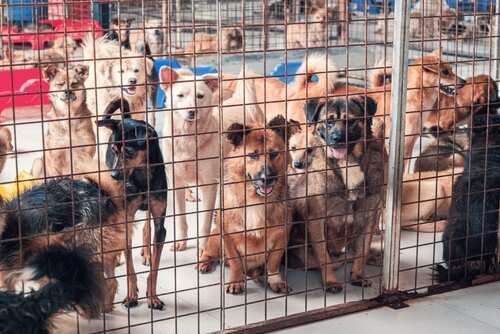Animal shelters across the nation are bursting at the seams, leaving pet owners with heartbreaking choices as they face the reality of economic hardship and skyrocketing costs.
At a Glance
- New York City’s largest animal shelter system, Animal Care Centers of NYC (ACC), has suspended most new intakes due to overcrowding.
- The economic downturn and high costs of living are forcing pet owners to surrender their beloved animals.
- ACC reached a record 1,000 animals in its care in July 2025, marking an unprecedented crisis.
- The City of New York has allocated emergency funding to address the crisis, but more sustainable solutions are needed.
Animal Shelters at Breaking Point
New York City’s Animal Care Centers (ACC) reached a critical point in July 2025, when it had to suspend most new animal intakes for the first time in its history. The shelter system, which has been a cornerstone of animal care since the mid-1990s, saw its capacity exceeded due to an overwhelming number of surrenders. This crisis is emblematic of a nationwide issue, where shelters everywhere are struggling with similar challenges.
ACC’s President and CEO, Risa Weinstock, pointed to financial hardship and housing insecurity as the main reasons behind the surge in pet surrenders. With the city’s high living costs and rising veterinary expenses, pet owners find themselves unable to keep their pets, resulting in an influx that shelters simply cannot manage. The pandemic initially saw a wave of adoptions, but as economic conditions worsened, the trend reversed, overwhelming shelters like ACC.
Stakeholders and Their Struggles
ACC is not alone in this struggle. Pet owners, many of whom are facing financial difficulties, are forced to make the heart-wrenching decision to give up their pets. The City of New York has stepped in, providing $1 million in emergency funding to help ACC hire additional staff and maintain operations. Mayor Eric Adams highlighted the city’s commitment to increasing shelter capacity and encouraged New Yorkers to adopt.
Animal welfare advocates and volunteers are pivotal in supporting these shelters through fostering and public awareness campaigns. They work tirelessly to reduce euthanasia rates and promote adoption, but the scale of the problem requires more than just community support—it demands systemic change.
Impact and Implications
The immediate impact of ACC’s decision to suspend intakes is dire. Pet owners with no alternative are left in a lurch, potentially leading to increased abandonment. Shelter staff face burnout as they manage the overwhelming number of animals, while the risk of euthanasia looms larger than ever. Long-term, this crisis could result in a rise in stray animal populations, further straining municipal resources.
The broader community stands to suffer from potential public health and safety issues tied to increased stray populations. The economic pressures that have driven this crisis reflect a national trend, with shelters nationwide reporting similar capacity issues due to rising pet care costs and stagnant adoption rates.
Seeking Solutions
Experts agree that addressing the root causes of this crisis requires more than just temporary measures. Affordable veterinary care, pet-friendly housing policies, and expanded foster networks are key components of a systemic solution. As ACC navigates this unprecedented challenge, it calls on the community for support through adoption, fostering, and donations.
The situation at ACC is a wake-up call for policymakers and citizens alike. It underscores the need for comprehensive strategies that tackle economic hardship and housing insecurity—not just for the sake of animals, but for the well-being of communities across the nation.
Sources:
Click this link for the original source of this article.
Author: Editor
This content is courtesy of, and owned and copyrighted by, https://libertynewsalerts.com and its author. This content is made available by use of the public RSS feed offered by the host site and is used for educational purposes only. If you are the author or represent the host site and would like this content removed now and in the future, please contact USSANews.com using the email address in the Contact page found in the website menu.





